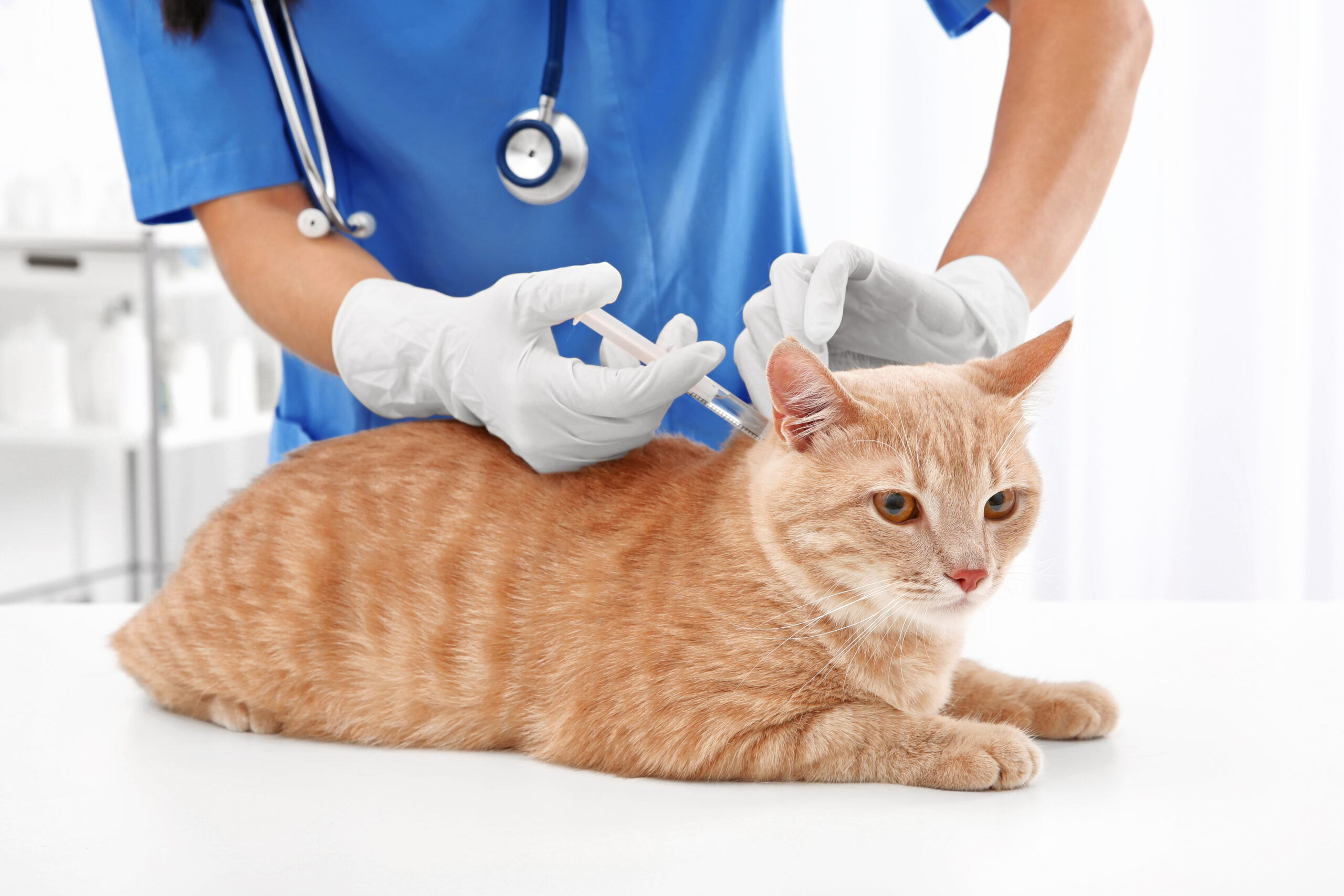Fact sheet: Cat Vaccinations

What do they cover for?
In the UK we routinely vaccinate our cats against feline herpesvirus, feline calicivirus and feline panleucopaenia virus. These three viruses are combined in the “tricat” vaccine. We also strongly recommend vaccinating for feline leukaemia virus, especially if they ever go outdoors. But what are these diseases and what do they do?
Feline herpesvirus and feline calicivirus are both causes of cat flu. These cause all the characteristic signs that we associate with the flu ourselves – nasal discharge, sniffing and sneezing, runny eyes and generally feeling under the weather. Once cats have picked up cat flu once they are prone to it recurring (even if they are vaccinated afterwards), as feline herpesvirus never truly recovers and can often recur, much like human cold sores.
Feline panleucopaenia virus is sometimes known as feline parvovirus, as it causes similar symptoms to the more commonly known parvovirus in dogs. You may also hear it called feline infectious enteritis, as it affects the intestines and causes gastrointestinal issues, such as severe diarrhoea and vomiting. It also affects white blood cells, which are key players in the immune system, which makes it even harder to fight the disease off, and can also cause neurological signs. Sadly it is often fatal.
Feline leukaemia virus is an infectious virus that has the ability to cause the development of tumours. These include cancers of the blood (lymphoma), the bone marrow (leukaemia) and tumours elsewhere in the body. It is spread by saliva and often transmitted either within a household by grooming, sharing food bowls etc or by fighting. It also causes anaemia and severe suppression of the immune system, making healing of recovery from minor infections and wounds very difficult. Sadly this often ends with us having to put them to sleep.
Why do kittens need a vaccination course rather than a one-off injection?
Kittens are born with some natural immunity from mum, which is boosted further by suckling colostrum or “first milk”. What immunity they get will obviously depend on what immunities mum has at this time and the levels may be different for each kitten. We aim to start vaccines at 8 weeks as this is when we tend to see maternal immunity starting to fall in the kittens, however any immunity left will interfere with the vaccine. This is why kittens need a second vaccine to boost immunity in a few weeks. We then give a full vaccine 12 months later to make sure immunity is fully topped up.
What if my pet is unwell when their vaccinations are due?
For cats to form an effective response for a vaccination, they need to be well and not suffering from any acute illness. This is to ensure their immune system can concentrate its efforts on forming a protective immunity to the vaccines, rather than fighting disease elsewhere in the body. In fact, if the immune system is busy trying to fight an infection and we ask it to respond to a vaccine as well, we might cause enough of distraction that the infection can start to win! This is why we will always ask you how your pet is prior to vaccinating and perform a full health check to ensure we are not missing anything.
Do we really need to give all these vaccines every year?
The short answer is… NO! How often we give vaccines depends on how long the immunity has been proven to last on all cats. In the case of the virus causing feline leukaemia, immunity lasts for 3 years once they have had their first adult booster. However two of the three viruses in Tricat produce a less long-lasting response so the Tricat portion of the vaccine needs a booster every year. Many cats will have immunity which outlasts the proven 1 year or 3 year term – but with these diseases being so serious, is it worth the risk?





